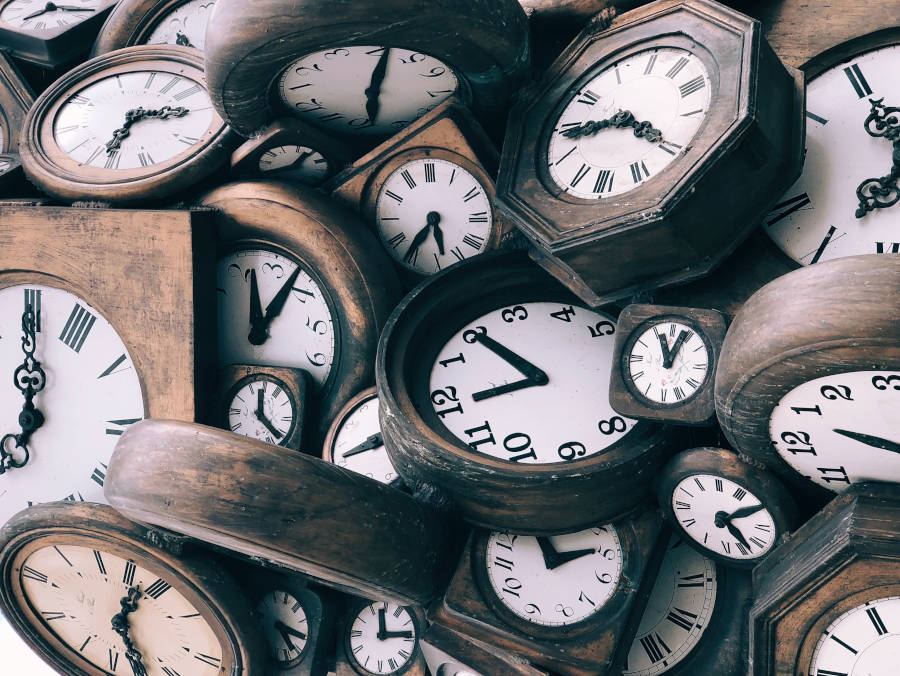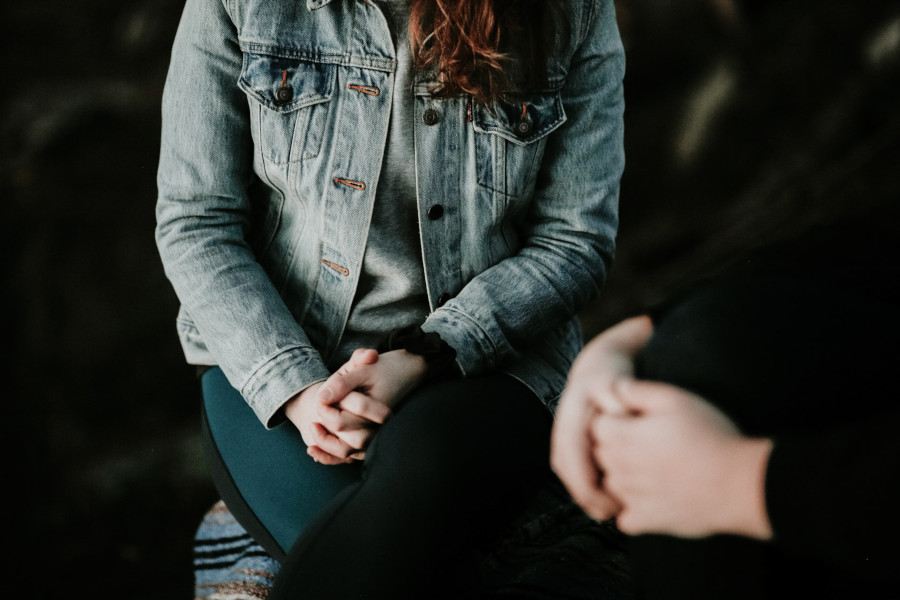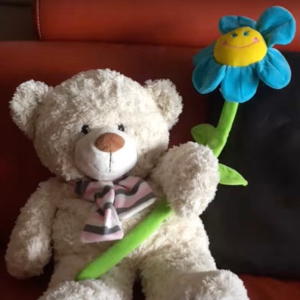Contribution from Gnomy Evergreen
I am a 29-year-old female in Hong Kong, who was diagnosed with severe OCD (obsessive compulsive disorder) at the age of 10. I started taking medications (mostly SSRI) since I was diagnosed, and am still taking medications today. My parents and I have travelled to different places in the US and Canada for my treatment. I have also been treated by different psychologists and psychiatrists in Hong Kong for many years, and am now still continuing with treatment in Hong Kong.
More recently, I had found out by myself, after reading an article on the Internet, that I also have an extremely rare phobia of growing up, or growing older: Gerascophobia. Before learning about Gerascophobia, I sometimes wondered if I had (BDD) body dysmorphic disorder as well, however, after reading the article online, I understood that it was something else. At the time, around 5 or 6 years ago, I saw an article online about a 14 years old boy in Mexico, who was diagnosed with an extremely rare type of phobia. Like me, he had a fear of growing up.
I had immediately thought that the description of the symptoms of the boy in the article was very similar to the way I would describe myself, or what had happened to me during puberty. However, all of the psychologists and psychiatrists who I have met in Hong Kong as well as in the US seemed to know very little about the type of Gerascophobia which I believe that I have.
My time at primary school

During my first year at primary school (when I was around 5 years old), my school teachers already thought that there was something wrong with me. Therefore, the school recommended that my parents and I visit the school‘s child psychologist. At the time, visiting the child psychologist had made me extremely unhappy. He believed that I was a problem child, and that one of the reasons was because my parents were not strict enough (too friendly) towards me. I believe that I have always been someone who would never accept an aggressive person’s words, i.e. I could never be threatened.
The child psychologist had made me feel that I was the problem… and that he, my parents, and teachers and I were fighting against each other.
Also, I was the kind of child who would never accept what adults told me without an explanation, and was not afraid to argue when I disagreed, or did not accept their words. I always had my own opinions about almost everything, but would cooperate if adults were patient to explain in a nice way and give reasons. Therefore, I believe that this was another reason why to my school teachers, and to the child psychologist, I was a stubborn problem child.
Thinking about this, I wonder how adults can teach a child to be polite to the people around them if they themselves are rude and aggressive towards the child. The child psychologist had made me feel that I was the problem and given me the feeling that he, my parents, and teachers on the one hand and I on the other hand, were fighting against each other. Doing this seriously harms children.
Bullying from classmates
During my last two years at primary school, I became even unhappier as I was bullied badly by some classmates (one boy, was violent towards me as well). When I was in grade 5, I had a feeling that even my class teacher disliked me very much. The school had always said that they had very strict policies about bullying; unfortunately, to me, those were only words as I felt that they did not do much to protect me. Even before these two years, some of the children as well as one or two of the security guards in the residential compound where I lived, had sometimes made fun of me. I felt that I was in a negative environment as the adults around me sometimes gave me a feeling that people made fun of me because I gave myself an image which seemed weak and weird (meaning I was creating trouble for myself).
Although I knew that my family and friends loved and cared about me very much, I felt that no one had loved and accepted me as the person I was.
I also often had a feeling that when I was unhappy or had problems, the people around me did not sympathise much for in their opinion, I was unhappy because of my own attitude or because I was not working hard to do better. Another reason why I was unhappy was that I felt that no one truly understood and accepted me. To my friends, relatives, and all of the people who knew me, I was the luckiest “little princess” who had everything which she wanted, as my family loved me very much (which I have never denied) and was able to give me every tangible thing that I needed.
Unfortunately, for many years, my parents and the people who knew me had given me the feeling that they would love and appreciate me more if I had a different personality or attitude. I mean that if I was less sensitive, more positive, fearless, had a fighter spirit, or was a stronger person. Also, I was never the type of person who would be willing to try everything, (or all types of treatment) just to help themselves. I have always been more afraid of having to face pain or difficulty, and am still this way today. Although I knew that my family and friends loved and cared about me very much, I felt that no one had loved and accepted me as the person I was. No one could imagine why I was quite miserable. Therefore afterwards, even when I was much older, I had often felt that I would never be the person that people around me imagined, or expected me to be.

My therapist also recommended another child psychologist to my parents, as she thought that I had problems with my attitude.
Today, I believe that society should learn to accept that everyone is different. Each person should be able to be themselves, without worrying about forcing themselves to be a different person, or be like other people who are popular, just to please the people around them. Others should respect us as well as our different personalities as long as we know ourselves and do not hurt anyone. I now also understand that if we truly love or care about someone, then we must love and accept them as the person they are. People who do not accept or respect the real you are not your friends.
Treatment in North America: Questionable treatment methods
Starting from the year when I graduated from primary school until the summer before my 18th birthday, my parents and I had travelled to either Canada or the US almost every summer holiday, as well as during one Christmas holiday, for my treatment. Unfortunately, beginning from the summer after I had finished my first year at secondary school, every time I returned to Hong Kong and to school after the trip, I felt very disappointed and unhappy.
During the summer when I travelled to the US for my treatment for the first time, my therapist also recommended another child psychologist/family counsellor to my parents, as she thought that I had problems with my attitude. In my opinion, he (the child psychologist/family counsellor) was teaching my parents to give me a rude answer every time I said something which they disagreed with, or disliked – ”talk to the hand” was the response he taught my parents. You can imagine what would happen if a student did this at school!
One of my more recent theories is: It does not make sense to me that many people believe that they need to be polite to their friends and other people and be careful not to offend them, but think that just because they can speak very honestly at home, that they do not really have to worry about offending their close family. What I mean is that many people would just yell, or answer rudely at home when someone in their family makes comments which they disagree with or expresses an opinion which they dislike.
I do not believe that the majority are rude to their families on purpose. However, one reason behind may be that if you have this type of reaction towards a friend or other people you know, they could easily end their relationship with you. Many people probably have the idea that close family cannot do this just because you have offended them, and they always have to forgive you in the end. Strangely, if you tell the majority that you do not say ‘please’ or ‘thank you’ to your family at home, they would surely disagree. But to me, there is not much difference between the two examples. So I agree that we should be most honest towards close family, but believe that we should speak politely even if we disagree.

Gnomy Evergreen (the author’s pen name) is a person who has lived in Hong Kong since birth. She lives with Obsessive Compulsive Disorder and Gerascophobia, an extremely rare fear of growing up. Since the age of 10, she has received various treatments, including cognitive behavioural therapy and exposure and response prevention, which made her feel unseen and othered. Now, she is trying to raise awareness about the emphasis on ‘curing’ rather than ‘helping’ in conventional medical treatment of these conditions.
Disclaimer: The opinions expressed in this publication are those of the authors and do not necessarily represent the views of The HK HUB.
Header image credits: Maridav via Canva




